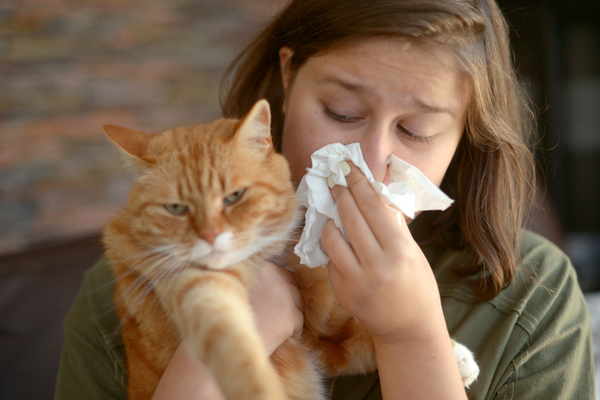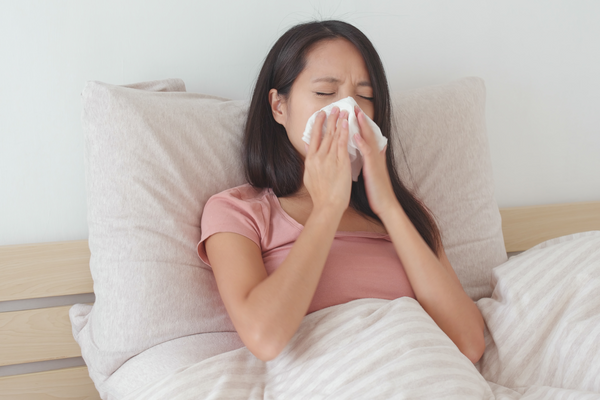The Ecology Works' Back-To-School Cleaning & Disinfecting Guide

Back-to-school season is around the corner, and once again, this upcoming school year is different for all of us. Across the country, school districts are preparing to reopen for in-person learning, and families are getting their children ready to head back to the classroom. With the ongoing pandemic and the Delta variant on the rise, many parents wonder what this school year will be like. While it’s not possible to prevent every potential exposure to germs and viruses, like common colds (remember those?!) or SARS-CoV-2, the coronavirus that causes COVID-19, you can help reduce the chances of germs being carried into your household with planning, preparation, and the right tools in your germ-busting toolkit.
In this back-to-school guide, we’ve put together helpful tips based on recommendations from the Centers for Disease Control and Prevention (CDC) and the American Academy of Pediatrics (AAP) to help get your family ready for the 2021-2022 school year.
Preparing For In-Person Learning
The best defense, as they say, is a good offense. Since many children will be starting in-person classes again in the upcoming weeks, it’s essential to be prepared and have a back-to-school routine. Help your child understand what to expect as they go back to in-person school and how to keep themselves clean and healthy during the school day. While school leaders will have safety plans and protocols in place, there are some things parents can do to help ensure their children stay healthy:
Don’t Send Kids to School Sick
Before sending your child to school each morning, check them for signs of illness, including cold or flu symptoms, which can range from cough, sore throat, and runny nose to fever, muscle aches, and gastrointestinal issues (including nausea, vomiting, and diarrhea). If your child exhibits any symptoms, contact your pediatrician for guidance.
Practice Mask Etiquette
The CDC recommends that all children (as well as teachers, staff, and visitors to K-12 schools) wear masks indoors for the 2021-2022 school year, regardless of vaccination status. The AAP also recommends universal masking in schools for students older than two years and all school staff. Masks are a simple, proven tool to protect students unable to get the vaccine yet or who have chosen not to get it.
By now, most kids have become old pros at mask-wearing, but consider working with your child on mask etiquette before they return to the classroom. Remind them how to safely put on and take off their mask, and remind them to wash their hands right after. It’s also a good idea to plan where your child will place their mask during snacktime and lunchtime at school, such as inside a labeled resealable container or a disposable paper bag. Consider sending your child to school with a few extra masks so they can change to a fresh one in case one gets dirty or breaks.
Read more about the CDC’s guide to masks here.
Related: How to Care for Your Face Mask
Talk About Handwashing
It may feel excessive to go over handwashing techniques again (at least 20 seconds with soap and water, covering all parts of the hand up to the wrist and in between fingers), but kids need to know how to do this on their own when they are at school. Before school starts, practice handwashing at home and explain to your child why it's important to wash their hands frequently, especially before and after eating, after adjusting a face mask, coughing or sneezing, and after touching items in public spaces. To get in the habit of washing their hands long enough, have your kiddo sing “Happy Birthday” twice while they wash up.
When handwashing isn't available, suggest that your child use an alcohol-based hand sanitizer that contains at least 60% alcohol. Also, remind children about the importance of avoiding touching their eyes, nose, and mouth while at school.
Read more about the CDC’s recommendations for handwashing here.
Prepare Kids for Social Distancing
While we’ve been talking about keeping 6 feet apart over the past year, the American Academy of Pediatrics (supported by the CDC) has reduced the recommendation to 3 feet apart in schools, as the previous guidance of 6 feet apart just isn’t practical for many classrooms.
Before your child heads back to school, remind them that their classrooms might look and feel slightly different, with their desks spaced apart and changes to activities like sharing, circle time, recess, and mealtimes. Explain that this is to help keep germs from spreading from one person to another.
Back-to-School Cleaning & Disinfecting
According to the CDC, cleaning and disinfection remain important layers of prevention to keep schools safe. Our all-in-one cleaner and EPA-registered disinfectant product, Vital Oxide, is tested and proven effective in killing SARS-CoV-2 on hard, non-porous surfaces, with a contact time of just five minutes. Vital Oxide has been used in homes, schools, businesses, hospitals, restaurants, public transportation, and more worldwide to help combat SARS-CoV-2.
Steps to Disinfect With Vital Oxide
Before you expose a surface to a disinfectant, a pre-cleaning step is always required. The cleaning process can reduce germs by removing dirt, grime, and residue that can harbor bacteria and viruses, but it does not reduce the germ load to the 99.9% level. Once a surface is clean, the disinfectant will be able to do its job. The disinfectant should always come into contact with 100% of the surface; otherwise, it won’t be as effective. Vital Oxide can be used to pre-clean surfaces before disinfecting under lightly soiled conditions.
Clean and disinfect in two easy steps: Spray and wipe Vital Oxide to clean, then spray and leave behind to disinfect. Just make sure you apply enough solution to remain wet for the proper contact time (five minutes for the coronavirus).
Vital Oxide can be used to clean and disinfect high-touch surfaces around the home and school, like desks, chairs, doorknobs, light switches, bathroom surfaces, and any shared equipment. Vital Oxide is fragrance-free, dye-free, bleach-free, and VOC-free and kills 99.9% of viruses and bacteria without harsh chemicals, noxious fumes, harmful residues, or alarming safety warnings. After use, Vital Oxide breaks down into simple salt and produces no harmful byproducts, making it an Earth-friendly choice.
Related: Cleaning, Sanitizing, & Disinfecting: Know the Difference
Have a Back-from-School Routine
In addition to preparing your child for a safer year in the classroom, you’ll also want to implement additional cleaning and disinfecting plans for your home, especially after kids get home from school. “When children return from school, they should immediately sanitize their hands,” advises board-certified pediatrician Dr. Candice W. Jones. “Once at home, at the very least, they should remove clothes/shoes and place them in the laundry or a designated safe place for disinfecting. A shower would be great but is not absolutely necessary.”
To help keep germs at bay, have your kids leave their school backpacks and shoes that they wear to school in a designated area, such as near the front door when they return home from school, instead of taking them into their bedrooms or other high-traffic areas in the house. Not-so-fun fact: In addition to shoe soles carrying viruses, they can also have up to 421,000 bacteria – and 90% of those bacteria can transfer directly to a clean tile floor on the first contact. So, keeping school shoes out of living areas – and regularly washing and sanitizing them – can go a long way to help prevent illness.
Every day after school, spray backpacks, lunch boxes, and shoes (as well as any other items that your child took to school) with Vital Oxide and let air dry to eradicate germs. Vital Oxide is gentle enough to be used on most water-safe surfaces (hard and soft) without causing damage. Remember to remove any visible dirt, dust, or grime before disinfection. Additionally, Vital Oxide can also be added to laundry to sanitize. Simply add ½ cup to 1 cup of Vital Oxide (depending on the size of the load) along with your regular laundry detergent to the washing machine.
NOTE: In cases where more frequent disinfection of surfaces results in a possible buildup of dry disinfectant residue, a wipe down with a moist towel or microfiber cloth of surfaces that come into contact with clothing (such as chairs, benches, etc.) will prevent any possible discoloration of fabrics.
Additional COVID-19 Back-to-School Resources For Students & Families
- The U.S. Centers for Disease Control & Prevention (CDC) Guidance for COVID-19 Prevention in K-12 Schools
- The American Academy of Pediatrics (AAP) COVID-19 Guidance for Safe Schools
- The U.S. Department of Education COVID-19 Resources for Schools, Students, & Families
Final Thoughts
As families and schools plan for a safe and successful school year during these unprecedented times, we want to send our best wishes. Rest assured, we will get through this together. From all of us at The Ecology Works, we wish you a happy and healthy school year.







